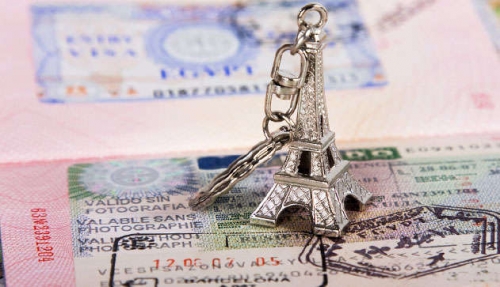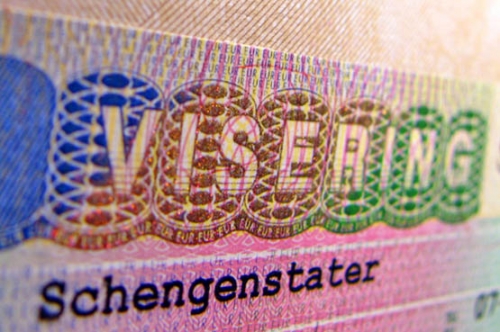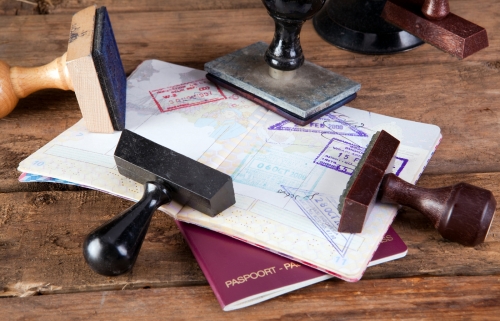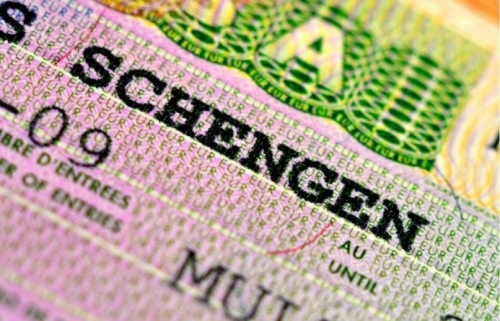How much does a Schengen visa cost for Russians and how is it done?
Almost all European countries require a Schengen visa, however, some states are not included in the special zone.
Currently, 26 countries are members of the Schengen Agreement. Among them are Germany, Spain, Italy, Poland, France.
However, the European Union also includes other states for which a different visa is required. These include the UK, Norway, Bulgaria, Croatia, Romania, Cyprus. Some of them are quite loyal to Russian tourists. Getting a visa to visit them is very simple, but prices can vary significantly.
How to get a Schengen visa in 2017
For trips to most European countries in 2017, Russian citizens need to contact the consulate of the desired state. Depending on the purpose of your stay and your visa history, you can get a single, double or multiple entry visa. In this case, the validity period can be different, starting from three months. A one-time stay in the Schengen area is 90 days for a six-month period.
First you need to decide on the purpose of the visit, which will depend on the type of visa received.
The most common document is a short-term visa category C. A category D visa is called a national visa and is issued under special circumstances.
There is a special category A visa, which is required for transit through the territory of a Schengen country. Such a visa prohibits leaving the airport.
To get a tourist visa for a trip to Europe in 2017, first of all, you need to decide where exactly you want to spend most of your time. The advantages of the Schengen visa are that it provides access to almost the entire European territory. But in this case, there are some nuances. If you want to visit, for example, France, then you should apply for a visa at the consulate of this state. If you have not decided in which European country you want to stay most of the time, then you need to apply for a visa at the consulate of the state through which the entry will be made.
Among the European countries of the Schengen agreement, there are states for which it is quite difficult to obtain a visa. This may be due to a large influx of tourists or with more favorable conditions for travelers to stay. And vice versa, there are territories that do not put up barriers for visiting their cities by Russian travelers. In this regard, Russian citizens are often tempted to apply for a visa in 2017 in one country, and, having entered, rest all the time they are in another.
This situation can lead to additional questions when leaving, as well as cause refusals when creating repeated visas.
To obtain a visa to stay in Europe in 2017, an extensive list of documents will be required so that the consulate can study in detail the information about the candidate for entry.
The very first and necessary document is a foreign passport. The main requirement for it is that it must be valid for more than three months from the date of departure from the Schengen area. You will also need a copy of the passport of the Russian Federation.
The second document is a questionnaire in which all information about the tourist is indicated.
Documents that confirm the purpose of the trip can be either a hotel reservation, or an invitation from a person living in Europe, or an invitation from an employer if you are going to work in Europe and not rest.
To obtain a visa, you will be required to provide round-trip tickets.
It is also important to prove your financial solvency. You can present a certificate of employment at the consulate. If you are not officially employed, you must provide bank statements.
To visit European countries, you will need medical insurance, the amount of coverage of which is not less than 30 thousand euros, as well as two photographs in 3.5x4.5 color.
Since 2015, additional rules have come into force that oblige tourists to provide their biometric data - fingerprints. They also increase the prices for service fees.
If you are applying for a visa to Europe for the first time, then your personal presence is required during registration at the consulate or visa center.Fingerprints will be stored in the general database for five years, so you have the right to issue a permit document a second time through an indirect person.
To apply for a visa for a child, you will need a birth certificate and permission to travel from one of the parents if he is not going to travel.

Obtaining a work visa in 2017
If you are going to work in Europe, then you need to apply not for a category C visa, but for a national visa. Getting it is different from a tourist permit.
A visa for work will require a different set of documents. In addition to the basic set, which includes a passport, photograph, application form, insurance, you will need a certificate of no criminal record, as well as a certificate that you are healthy, in particular, we are talking about the absence of infections in the body.
However, before applying for a visa for work, it is necessary to find a place of future employment. Without an invitation from the employer, you will not be able to obtain an entry permit, just as you will not be able to work in Europe on a tourist visa.

Obtaining a student visa
This type of visa is required if you wish to study in Europe in 2017. In this case, a letter from the educational institution, confirmation of payment for tuition, as well as confirmation that after graduation you will return to your homeland will be added to the main package of documents.

Prices for a visa to Europe in 2017
To obtain a visa, you will need to pay a consular fee. Its size is the same for all Schengen countries. In 2017, it will also be 35 euros. In case of urgent registration, the price doubles. It will also cost more to obtain a document at the visa center. The price of the fee is set depending on the policy of the state, and it is usually charged in rubles. France has set a price for the service in the region of 1125 rubles, Italy - 1350. The fee for visiting Greece is 880 rubles. The service fee also depends on whether fingerprinting is required. On average, a service fee of about 18 euros will be added to the cost of issuing a document without fingerprinting, and about 20 euros with fingerprinting.
If we consider countries that require their national visa, the prices may be higher. For example, the price for a UK short stay visa is around 120 euros. And the price for a long-term visa is 417 euros.

Which countries in Europe are the easiest to get a visa in 2017
If you do not have the goal of staying and relaxing in any one particular country, you can apply for a visa to the consulates of the states that are most loyal to Russian tourists. These are Italy, Greece, France, Finland. It is more difficult to get into the UK, Switzerland, Germany and Spain, as there is a high probability of visa refusals.

If you do not want to wait a long time for an entry permit in order to have a good rest, it may be worth paying attention to countries that are nominally European, but to enter their territory, you can resort to a facilitated procedure for obtaining a permit.
Such a state is Cyprus, which treats the Russians in a very special way. You can enter it with a Schengen visa, but the easiest way is to issue a pro-visa.
Applying for a pro-visa online is simple: just fill out the application form and send it to a specific email address. Thus, you can obtain a permit upon arrival in Cyprus.
If you want to relax in Europe in 2017 without obtaining permits at all, then you should pay attention to countries such as Turkey, Montenegro, Serbia, Macedonia, Moldova.Europe includes Ukraine and Belarus. The price of holidays in such countries, of course, will decrease due to the possibility of free visits.

To enter Montenegro and Serbia, you only need to have a foreign passport. With such a document, you will be allowed to stay on their territory for a month. In Turkey, with a passport, you can rest twice as long. In Moldova and Macedonia - three months.





